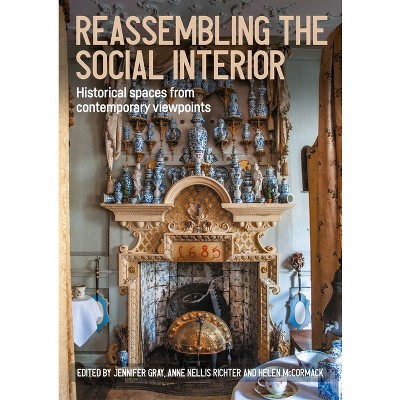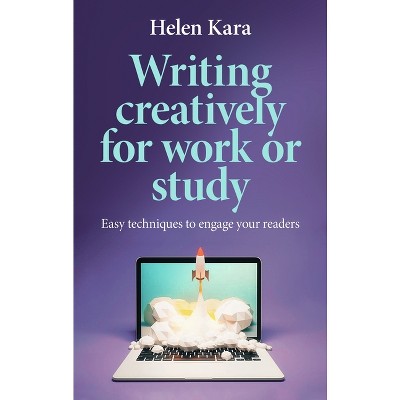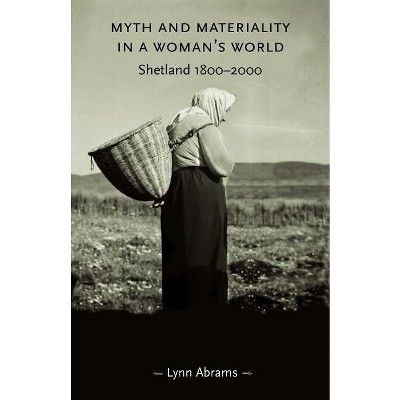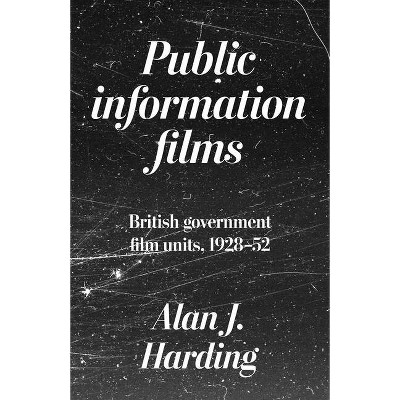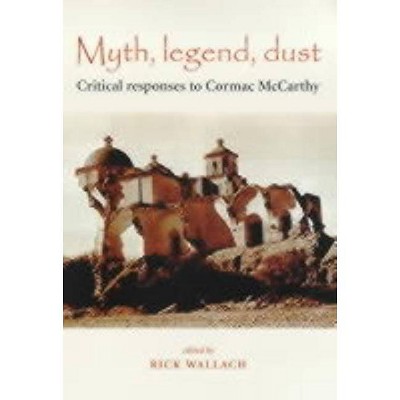Sponsored

Myth and (Mis)Information - by Allan Ingram & Helen Williams & Clark Lawlor (Hardcover)
In Stock
Sponsored
About this item
Highlights
- This book discusses the various cultural forms and literary works by which information, myth and misinformation on medical practices and personages were spread during the eighteenth and nineteenth centuries, and some of the reasons for this, from authorial self-interest to scientific ignorance.
- About the Author: Allan Ingram is Emeritus Professor of English at the University of NorthumbriaClark Lawlor is Professor of Eighteenth-Century Literature at the University of NorthumbriaHelen Williams is Associate Professor of English Literature at the University of Northumbria
- 312 Pages
- Medical, History
Description
About the Book
This book discusses the cultural forms and literary works by which information, myth and misinformation on medical practices and personages were spread during the eighteenth and nineteenth centuries.
Book Synopsis
This book discusses the various cultural forms and literary works by which information, myth and misinformation on medical practices and personages were spread during the eighteenth and nineteenth centuries, and some of the reasons for this, from authorial self-interest to scientific ignorance.From the Back Cover
This volume of essays analyses the persuasive and sometimes deceptive means by which myths, information, and beliefs about medicine and the medical professions proliferated in English literary culture of the eighteenth and nineteenth centuries. It explores how English vernacular medical texts of this period invite cross-comparisons with literary representations of health and medical practitioners, to enrich the picture of medicine in the popular imagination and to provide important perspectives on questions surrounding authenticity, agency, representation, and accessibility.
Drawing from a diverse spectrum of scholarly approaches, from medical history to book history, the essays engage with a wide range of primary source material. This ranges from canonical to little known literary and book historical sources, including the poetry of John Arbuthnot and Jane Barker, the life writing of James Boswell, and the novels of Tobias Smollett, Elizabeth Gaskell and Henry Rider Haggard, as well as medical works by George Cheyne and Daniel Turner and medical material aimed at public audiences, including skincare remedies, anatomical flap-books and the various (self)representations and advertisements of dog-doctors. Together, this rich array of material demonstrates how popular understanding of medical work and medical figures was informed and misinformed, whether by dishonesty, false marketing, preconceived prejudice, or through being made subordinate to non-medical ends such as comic or satiric productions or political, religious, or socio-cultural priorities. What emerges is a centuries-long 'infodemic' which invites comparisons with our present moment.Review Quotes
'Myth and (Mis)information expand our understanding of what counts as science, who gets to make it,
and how it circulates.'
SEL Summer 63, 3 Thematic Review
-Professor Andrew Mangham, University of Reading 'Myth and (mis)information is a must read for anyone in search of new insights into the modern medical marketplace, the circulation of knowledge, reader-reception of medical texts, and the shaping of medical culture. In a post-COVID era, it skilfully historicises the current anxieties we have about health misinformation. The book encompasses multiple aspects of medical writings within a cultural and historical perspective: women publishers, herbalists and healers, overlooked texts by medical celebrities, dog doctors, illness narratives of poxed men, medical branding and advertising, medical controversies on epidemics, vaccination or anatomy. A rattling good read!'
-Sophie Vasset, Institut de Recherches sur la Renaissance, l'Âge Classique et les Lumières (IRCL), Université de Montpellier Paul-Valéry
About the Author
Allan Ingram is Emeritus Professor of English at the University of Northumbria
Clark Lawlor is Professor of Eighteenth-Century Literature at the University of Northumbria
Helen Williams is Associate Professor of English Literature at the University of Northumbria
Shipping details
Return details
Trending Non-Fiction






